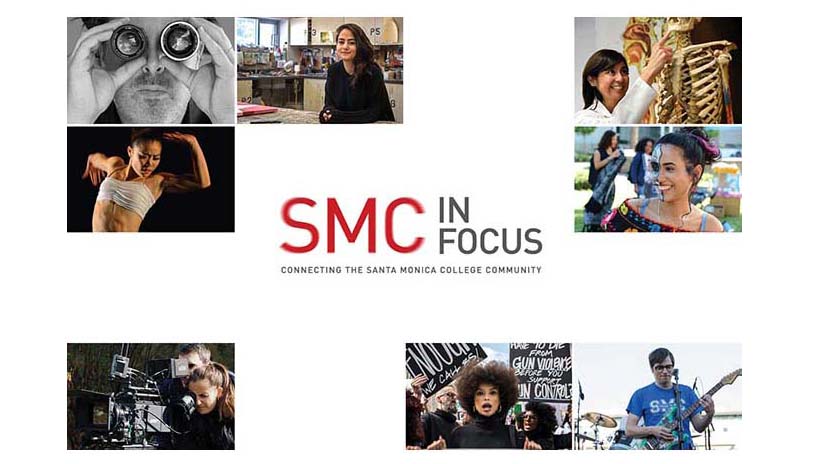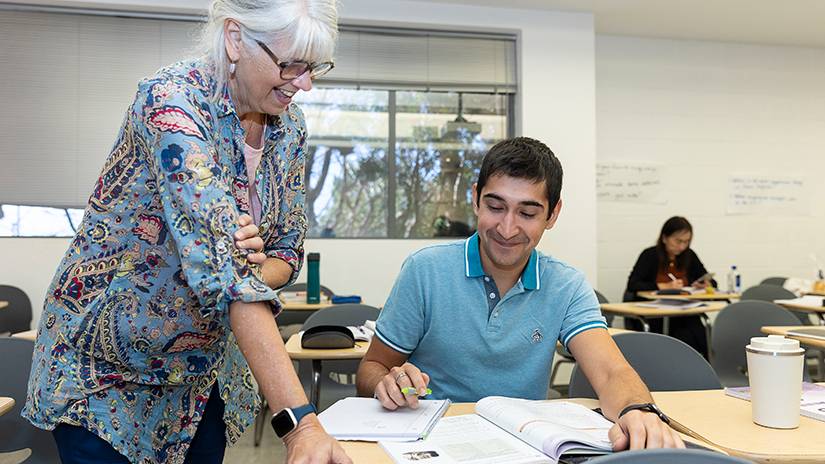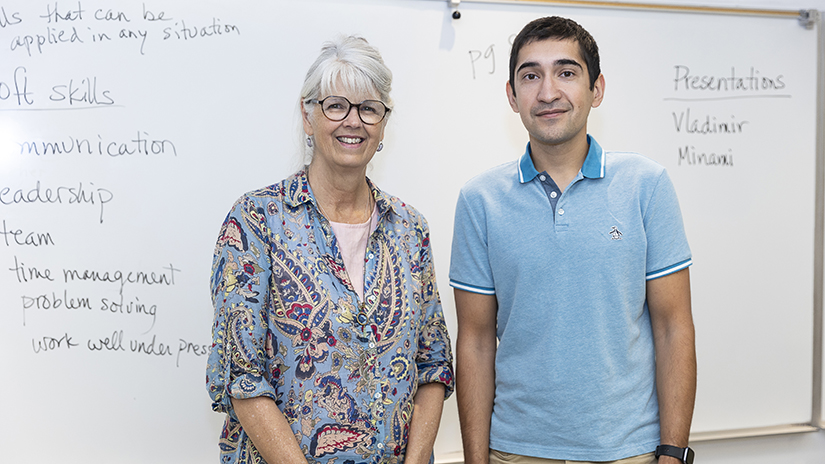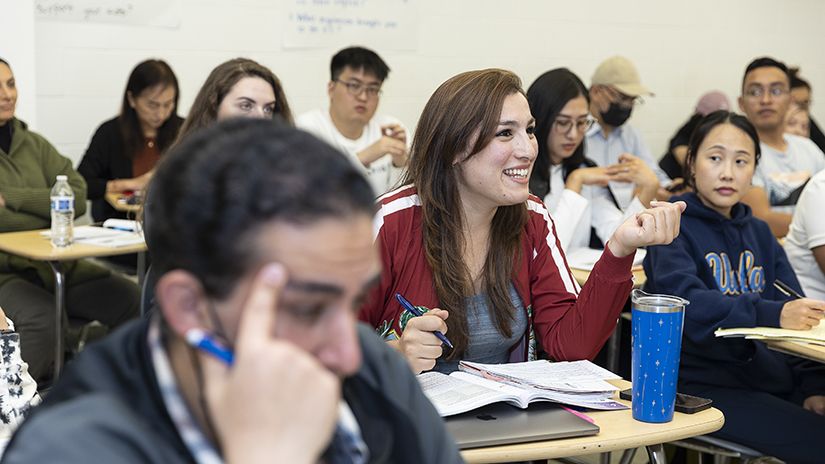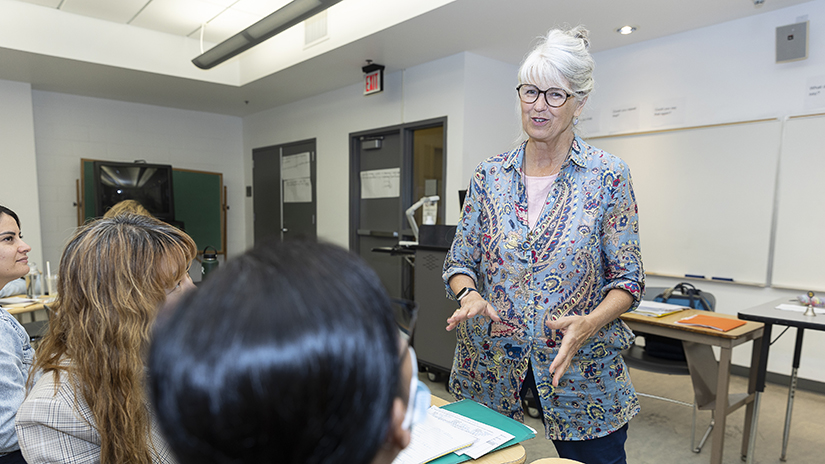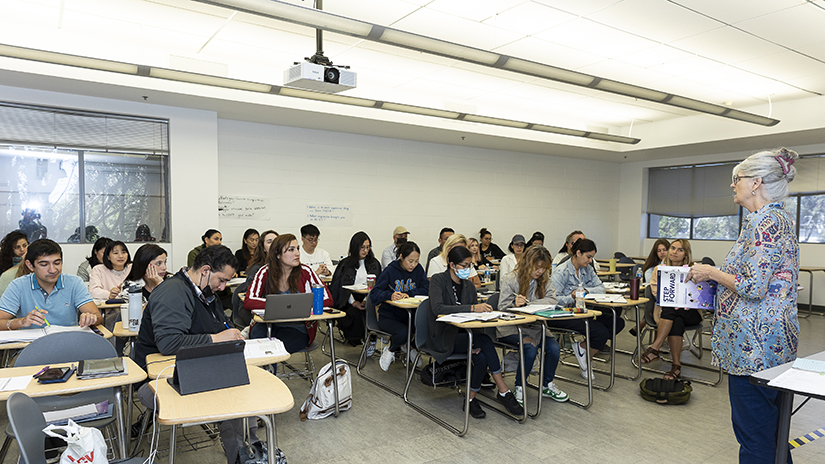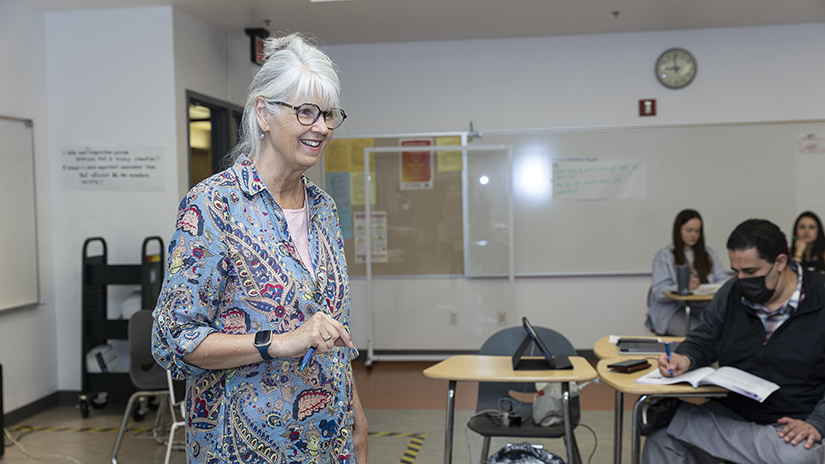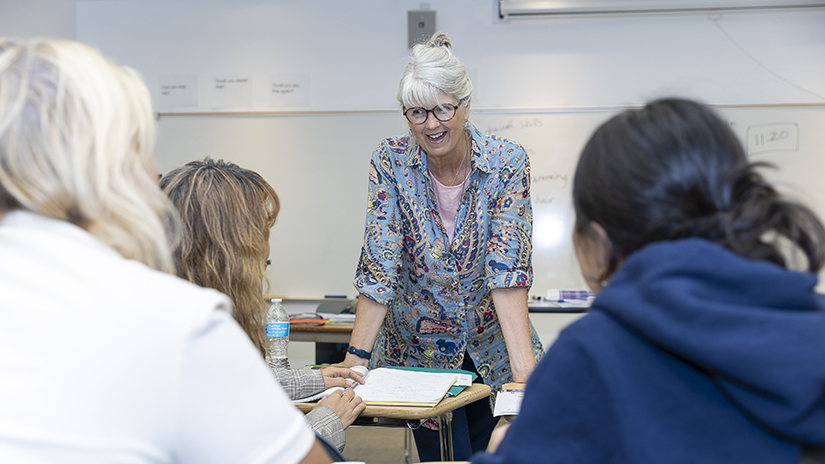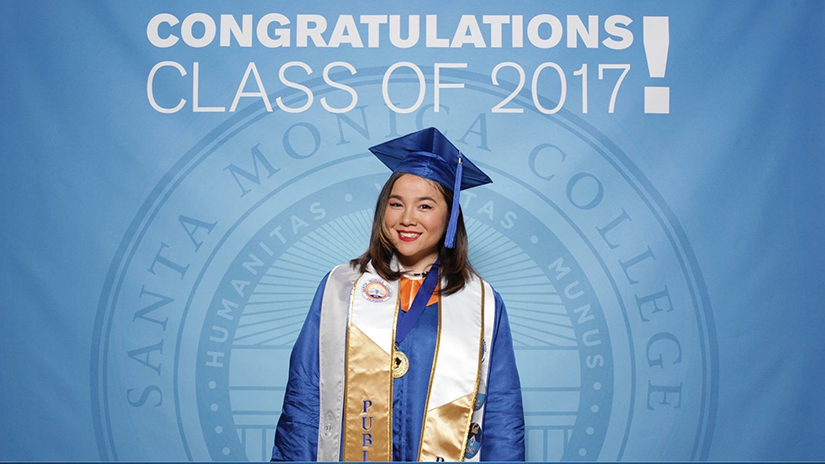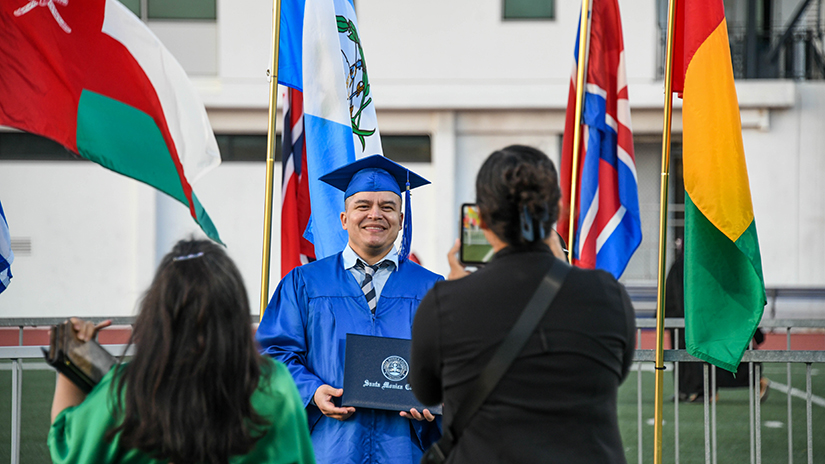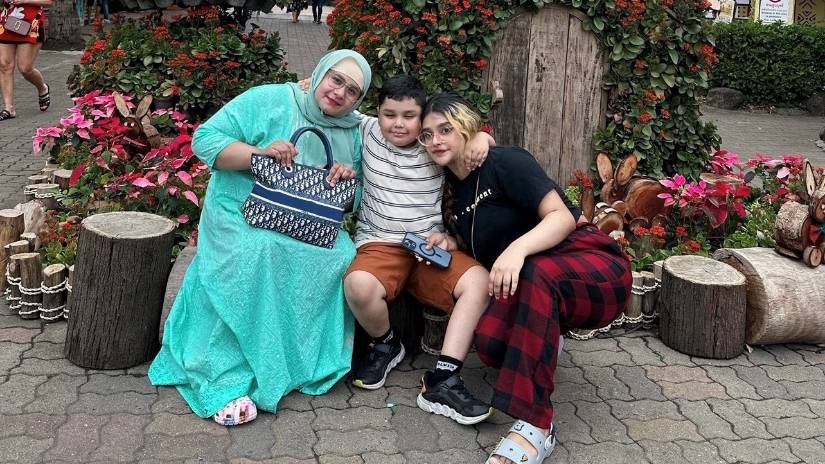
Andrew Shchukin and his wife immigrated from Siberia, Russia, with only what they could carry in two backpacks. Staying meant Andrew risked conscription into the country’s war on Ukraine, a conflict he opposed. “I do not share my government’s opinion, so I had problems,” he says candidly. “Leaving was the only way to survive.”
Everything from furniture to friendships had to be forsaken in their quest for freedom in the United States. This odyssey took them through the former Soviet states of Kazakhstan and Georgia as well as through Turkey and Mexico over the course of four arduous months.
It also brought them to Santa Monica College. Because, even as the couple cleared hurdles and gained permission to enter the U.S., a significant barrier remained — that of language. So Andrew and his wife turned to SMC’s noncredit English as a Second Language (ESL) program.
Qualified adults can enroll in SMC’s free, noncredit ESL courses at any time during a semester. Offered throughout the year, the courses come in five levels — from beginning to advanced — enabling students to take the exact class they need. To account for busy work schedules, the offerings blend online learning with in-person sessions held once a week. Students who pass two courses gain a certificate of competence in the ESL level studied.
“We needed to learn English and speak it better because we want to be part of this society,” says Andrew, who now holds one of those certificates.
From Upheaval to Hope
“He’s very driven to make a life here,” says Adjunct Professor Marianne Borgardt, who has had Andrew as a student for two courses. He began in ESL 903, integrating low intermediate skills in speaking, listening, reading and writing, and then moved on to ESL 905, which boosts those abilities to the low advanced level.
While the program welcomes students from all over the world, Marianne notes many of them share Andrew’s plight. “We’re seeing a lot of Russian and Ukrainian students who never expected having to leave their homes and careers,” she says.
Marianne is one of 10 expert instructors in the noncredit program, which features online and in-class learning under the direction of Faculty Lead Liz Koenig-Golombek and overall ESL Department Chair Keith Graziadei. Marianne also coordinates SMC’s Cultural and Language Exchange, which connects ESL participants to students in the college’s Modern Languages program, so they can learn from each other while building friendships in the process.
Such support is vital, Marianne notes, because SMC’s ESL program is about more than improving English fluency — it’s about realizing hopes and dreams.
Empathy and Experience
In addition to her language skills, Marianne provides students with empathy and understanding. She knows what it’s like to struggle with learning a different language in a country new to her. As an undergraduate at UC Santa Cruz, she wanted to learn Spanish for her Latin American studies major.
“But I wasn’t very good at it,” she admits. So, while still a student, she moved to Colombia and lived there for three years. While being immersed in Spanish, she supported herself by teaching ESL to local students. “I didn’t have any training, but I was a native English speaker, and they thought that was worthwhile,” Marianne says.
After returning to the U.S. to complete her bachelor’s, Marianne enjoyed a career in publishing before becoming a stay-at-home mom to two daughters. When they reached adulthood, she decided to return to work and investigated opportunities at SMC. “I made an appointment with an ESL instructor, who told me I had a great background but needed a master’s degree and more teaching experience,” she recalls.
She gained both by earning her master’s in Teaching English to Speakers of Other Languages at Cal State Northridge. SMC hired her right after graduation.
While Marianne began at SMC by teaching credit ESL courses for students on the degree path, she realized her passion was for making a difference in the lives of noncredit learners. “Most of them are immigrants or refugees, and they’re all dying to learn English,” she says, adding that about half are in their 30s or older.
Becoming Citizens
ESL students learn from activities and each other as well as from teachers and textbooks, Marianne notes. “I tell students that this is a room full of teachers,” she says. “Because everyone knows a little English that’s different than what you know.” During in-person sessions, she encourages students to sit with partners whose first languages are different from theirs.
“We do a lot of partner work,” Marianne says. “Because I want them to begin thinking in English.” She also helps them acclimate to everyday life in the U.S. — from banking to navigating customer service telephone systems.
From the perspective of students like Andrew, SMC’s ESL program is also valuable for its online Citizen Preparation course that instills the knowledge needed to pass the exam administered by U.S. Citizenship and Immigration Services (USCIS). Andrew and his wife are waiting for their USCIS interview and are optimistic about becoming American citizens.
In Russia, Andrew earned a master’s degree and was a manager in transportation back in Siberia. So he’s starting over professionally in the U.S. — and feels privileged to have that opportunity. “Here, all people have rights,” he says. “And we are safe.”
He also prefers the Southern California climate to the Siberian cold. “We had interesting conversations talking about the different levels of cold,” says Marianne with a laugh.
Learn more about SMC’s noncredit ESL and other offerings at smc.edu/noncredit.
* * *



